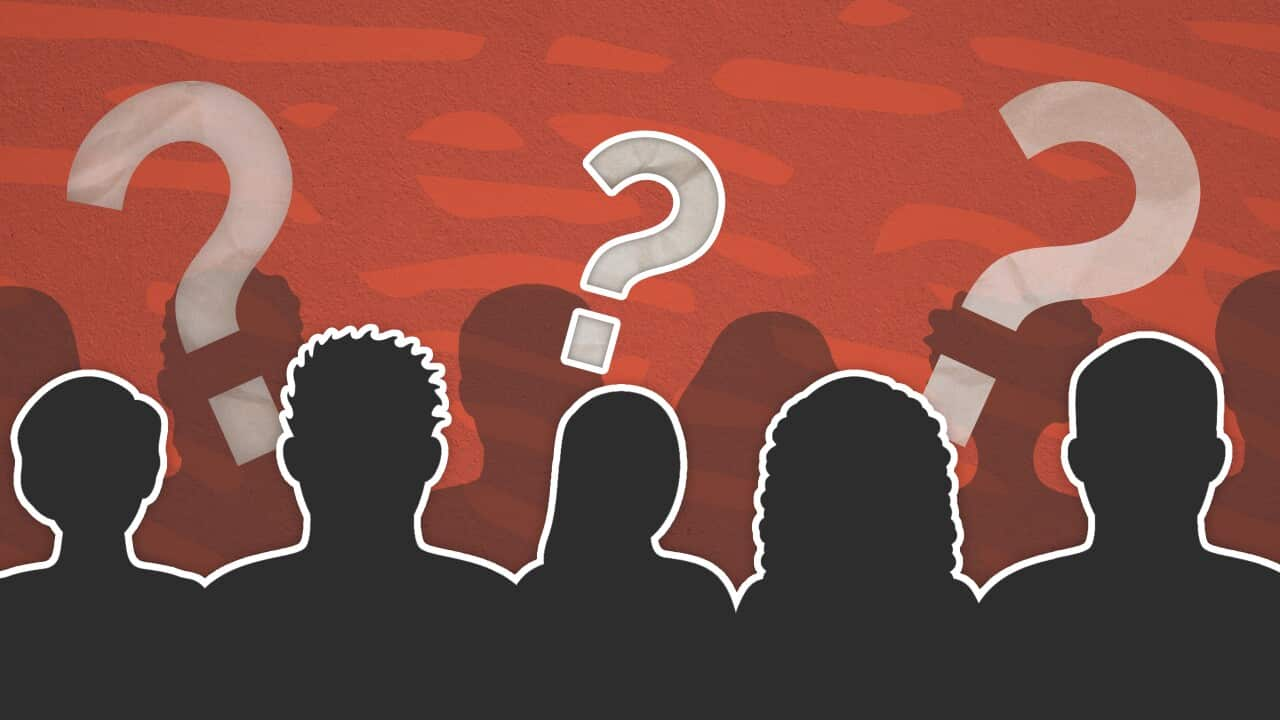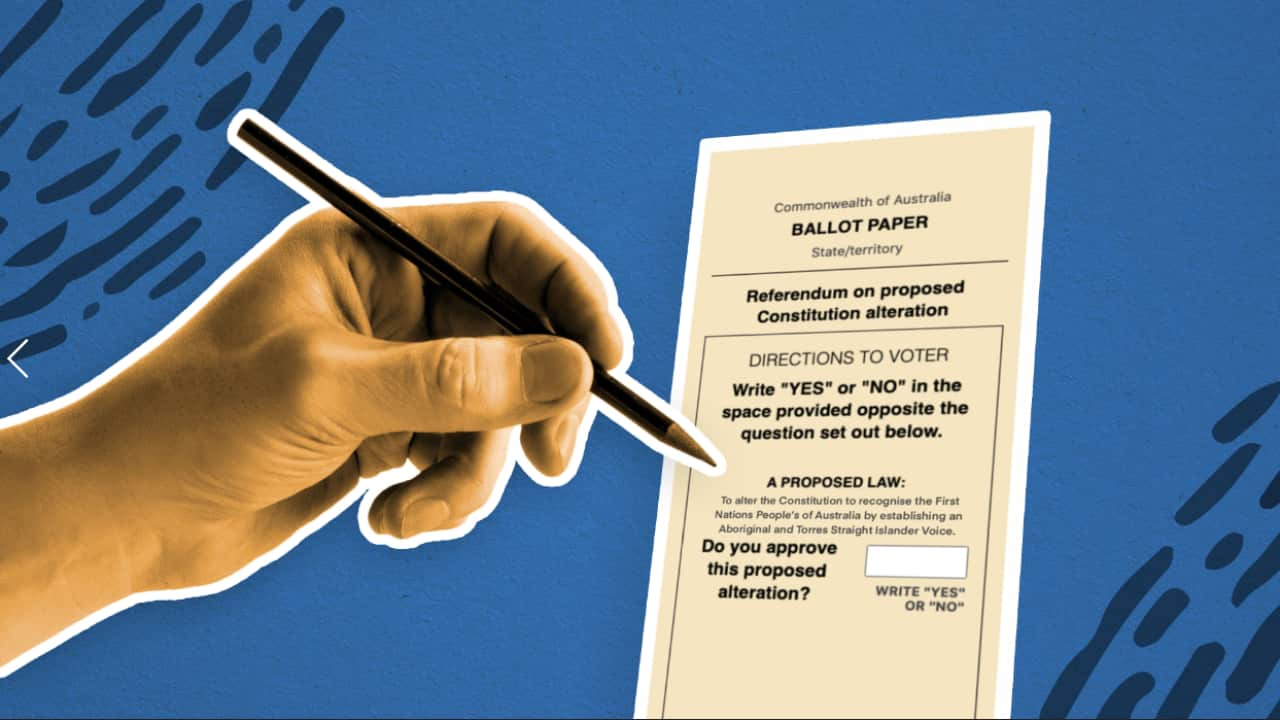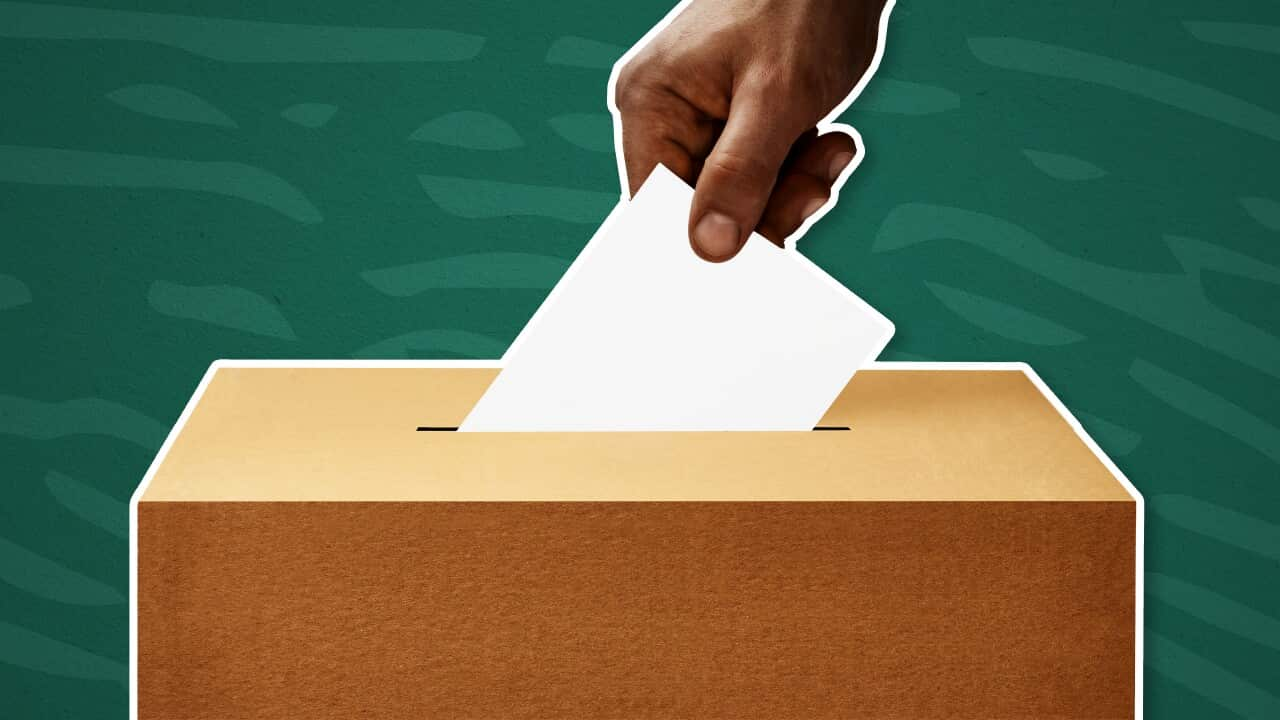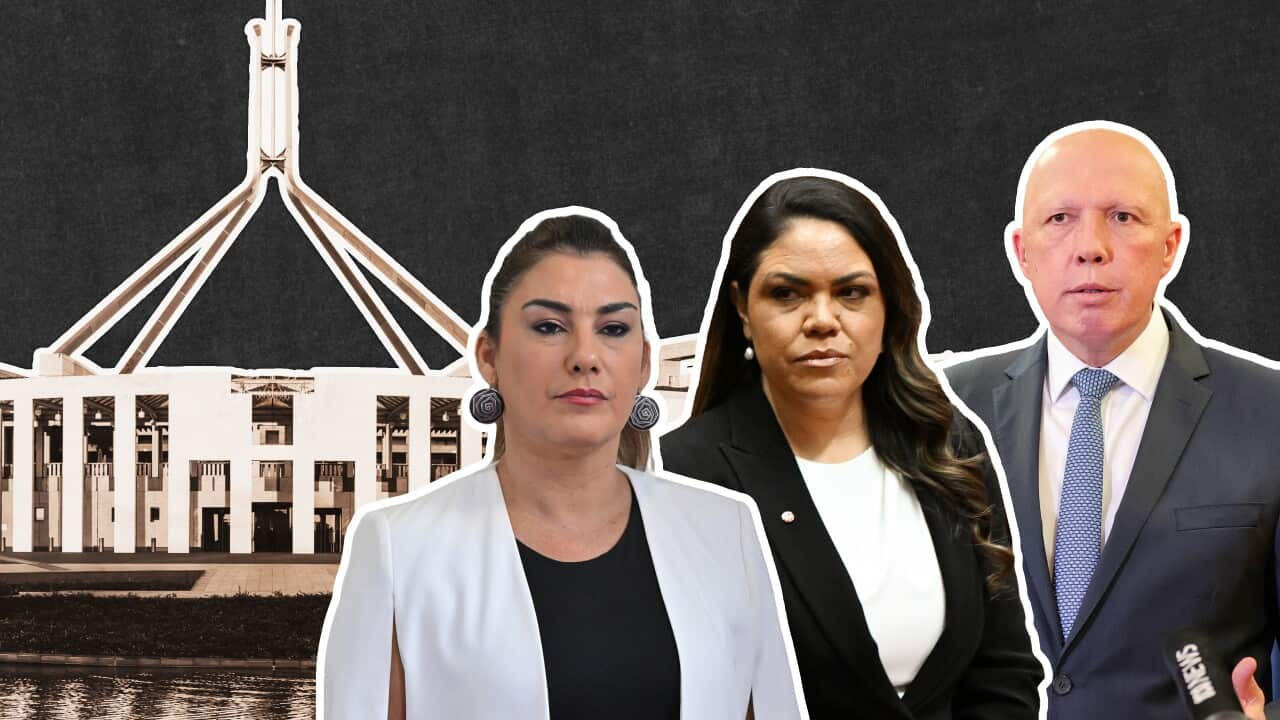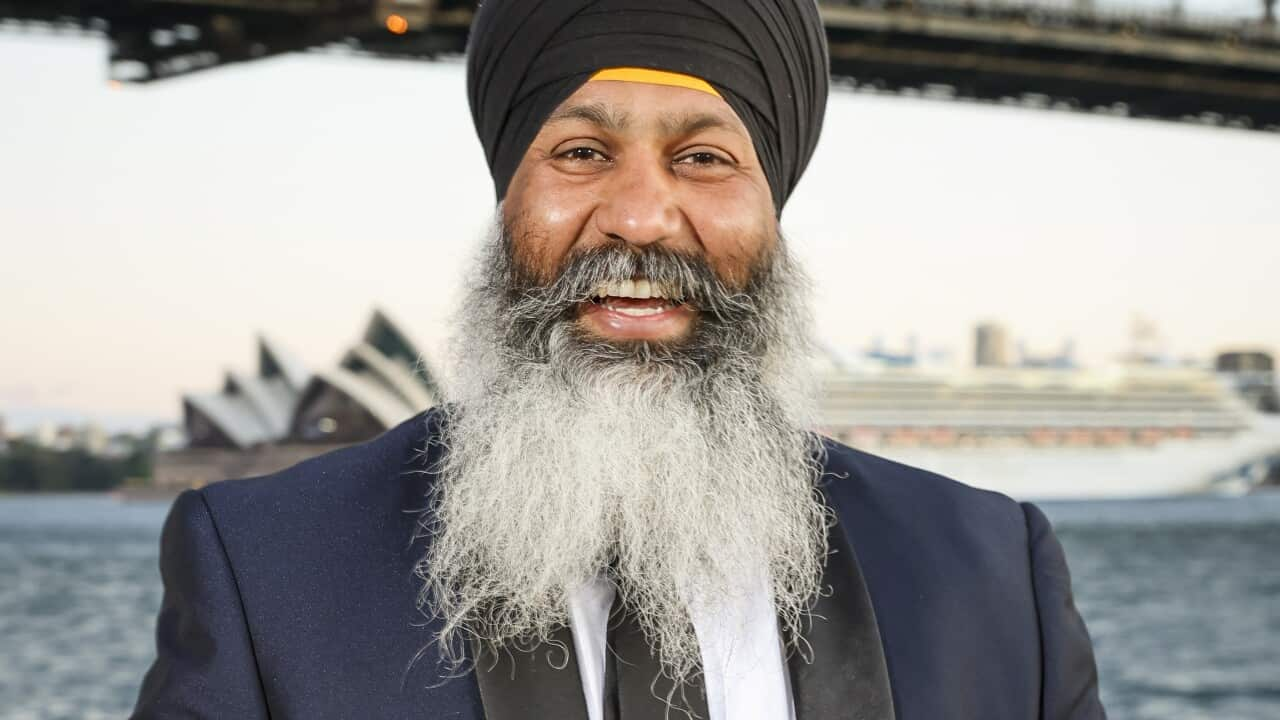One mid-September morning outside a shopping centre in western Sydney, a group of people were asked about their views on the Indigenous Voice to Parliament.
Their responses were mixed; some were voting Yes in the 14 October referendum, others No. But many were unsure or undecided.
One man, speaking in Arabic, responded “yes, why not?” when asked whether he would be voting on the Voice. When it came to the referendum date, he was unsure.
“When it’s time for it, I’ll go and vote,” he said, before asking, “What do the [Indigenous] people want?”
“Wow, we don’t have a voice?” he says, asking for more information. “What’s new? Can you tell me?”
SBS Arabic TV spent time speaking to people on the street in the suburb of Merrylands last week.
There was fervent determination among some of those SBS spoke with to vote in favour of, or against, the Voice. Among others, there was confusion.
One man, speaking in English, first responded: “The Voice as in the television show?”
“Isn’t it the Australian Voice, the music one?” another man asked. He later clarified: “Oh yes … we are very excited about the vote. I know a little bit.”
Australia’s culturally and linguistically diverse (CALD) communities hold crucial votes in the upcoming referendum. About 28 per cent of Australians were born overseas and almost half have a parent who was born overseas, .
Both the Yes and No camps have made migrant voters a key target of campaigns.
Over 180 migrant and cultural organisations have , with work being done at an organisational and grassroots level .
The most prominent Yes campaign, Yes23, has identified engaging with multicultural communities as a major focus. Community events
In January, prominent No campaigner Nyunggai Warren Mundine raised the idea of recognising migrants alongside Indigenous people in the constitution, as "offensive" and "divisive".
The president of FECCA, Carlo Carli, that organisations in CALD communities “have largely come on board with the Yes campaign”.
He said while the Yes camp is “extraordinarily broad", there isn't "the equivalent level of community campaigning or activity coming [from the No campaign]”.
Is Voice messaging getting through to CALD communities?
The people SBS Arabic spoke to were from different backgrounds. Around half of them spoke in English, the other half in Arabic.
People were asked several questions, including whether they were going to vote in the referendum, whether they had decided how they would vote, if they knew when the vote was, and if they felt sufficiently informed to make a decision.
All eligible Australian citizens aged 18 years and over are required by law to enrol and vote in the referendum, .
People were not asked whether they were registered or eligible to vote, however many indicated they would be voting.
READ MORE
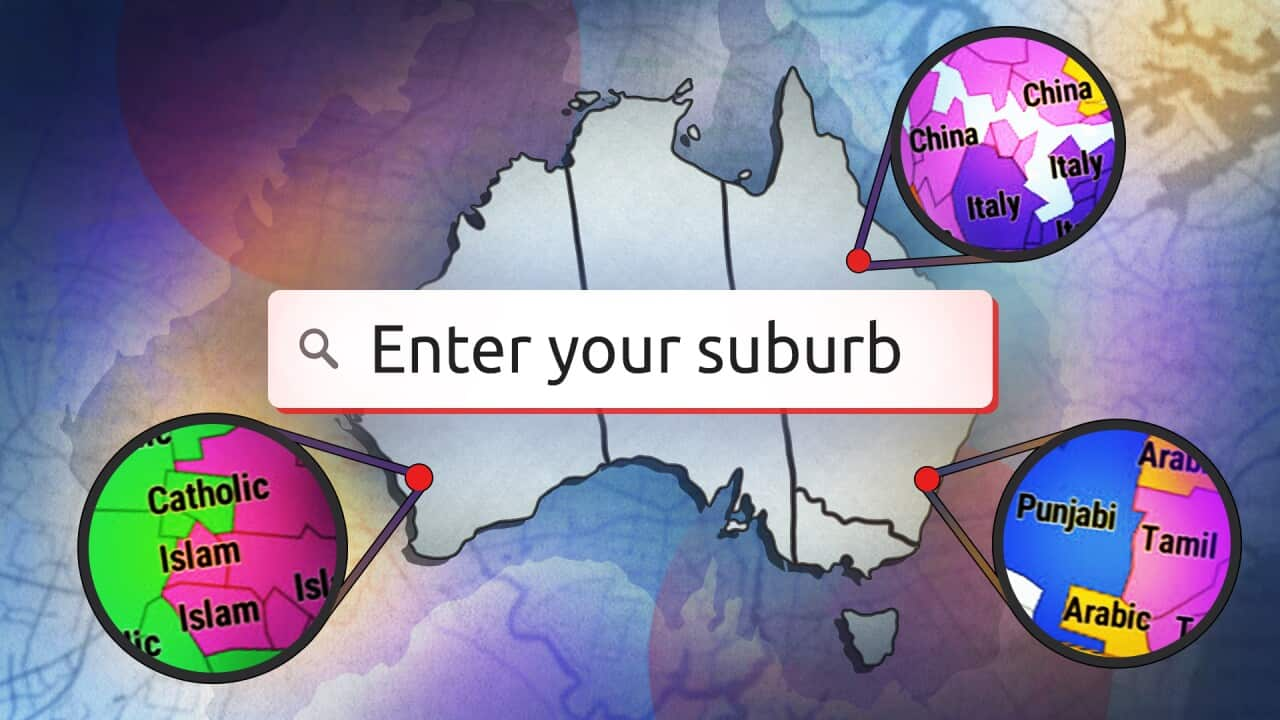
How multicultural is your suburb?
One woman, speaking in Arabic, said she was a new Australian citizen and would be voting Yes.
“I have no information. But I just want to vote Yes,” she said.
One man, speaking in English, said that, while he has “minimal information”, it was "enough” to incline him toward voting Yes “because they [Indigenous people] have the right”.
Another woman said she would be voting No “because they don’t listen to us anyway. People are sleeping on the street. Are they going to listen to us? Probably not.”
Many others were undecided.
One woman said: “I don’t know yet. I haven’t made my decision”.
“I honestly don’t know,” said another man when asked when the vote was taking place, and if he knew how he’d be voting.
“No, I don’t know. I don’t really care about that decision, to be honest.”
Another man said he would be discussing the vote with his wife, “and we are going to make a decision”.
Andrew Jakubowicz, an emeritus professor at the University of Technology Sydney, has researched the political participation of multicultural communities for two decades and is collaborating with a social research group on the Voice.
He said these responses were likely a “fair representation” of a lot of undecided voters, who either say they don’t know what’s going on or don’t know how to respond.
“There’s a significant group that haven't decided. Most of them are people for whom the issue has not been salient - it’s not on their radar very much at all,” he said.
"They may not know it’s on, they may not care that it’s on, it may be a much lower-level issue for them ... but they will become more aware over the coming weeks.”
Gamel Kheir, secretary of the Lebanese Muslim Association (LMA) based in southwest Sydney, said his group was engaging informally with community members who sought information about the Voice or asked how they should be voting.
"There's been a lot of confusion, a lot of lack of understanding of what they're voting for, or against," he said.
Kheir said this came down to a lack of education and connection to issues concerning Indigenous Australians. He believes there has not been enough focus on engaging migrant communities "and making the message clear as to what the intention is".
I think the message has to become much simpler - at least for the Yes campaign.Carlo Carli
Carli said communicating to migrant groups about Indigenous history was a challenge FECCA identified early in the campaign.
“It’s that context that’s been missing; not the empathy,” he said. “A lot of the work that communities have done has been about putting the question of the Voice in historical context.”
He said he understood why people might not have been focused on the Voice amid other issues, such as the cost of living.
But he said the message “is not actually complicated”. If that has not been understood, he conceded for some, “the message has been lost”.
“I think the message has to become much simpler, at least for the Yes campaign.”
Jakubowicz said while the referendum was asking a simple question, “the argument is quite complex. And it’s hard to translate easily into many languages.”
The AEC has and can connect people with translators.
AEC spokesperson Hala Abou Alsissan told Arabic TV these materials along with media channels such as TV and radio are important resources.
“All the information should be available for everyone who is willing to look out for this information.”
What's shaping migrant Australian attitudes to the Voice?
Jakubowicz said that, in many ways, engagement among CALD communities is not dissimilar to the rest of Australia.
“We know, for instance, that support for the Voice tends to increase as education goes up, and tends to decrease as education goes down,” he said.
But there are significant differences in particular groups, especially those in which religion and political heritage play a greater role.
For ethnic communities who don’t have extensive knowledge about Australian and Indigenous history, Jakubowicz said the focus was often more local.
“The ‘natural reaction’ when you’re under stress and apprehensive and not knowing about the environment is to pull back from engagement. And I think there’s a fair amount of that.”
He said the overarching question for all sides of the campaign is: Who do you trust?
“The other part is: what’s the appropriate way to move on this to protect my family's interests in the future?”
Amar Singh's Voice roadshow: ‘People need more information’
has had many conversations with culturally diverse, religious and ethnic groups about the Voice in recent months.
In August, the 2023 Australian Local Hero in support of the Yes campaign.
Singh has been visiting capital cities and regional towns, holding community events, visiting places of worship and meeting with community leaders. Along the way, he has been joined by politicians and other high-profile Australians.
He says the response has been “overwhelmingly positive”.
“I just wanted to talk to people, especially ethnic and migrant communities, to say you’re part of Australia, this is your homeland too. There is a political debate going on, you should be part of it,” he said.

Amar Singh with Team Larrakia, an Indigenous AFL side from Darwin, while on a tour to support the Yes campaign Source: Supplied / Amar Singh
He said language barriers could affect engagement, and that people needed more information.
“That’s one thing that’s true. But I think, overall, once you have talked to them, then they can put two and two together.
“There is potentially disengagement from the wider community. That’s why I’m asking everyone to share information about the Voice in their own language.”
Singh said community leaders played a vital role in sending out information. “Just like in COVID, we all came together and helped each other out.”
Singh arrived in Australia from India’s Punjab state with his family as a teenager. Last year, he was named a 2023 Australian Local Hero for his work helping Australians in crisis during COVID-19 lockdowns, floods and bushfires.
He says embarking on the road trip was “the right thing to do”.
“For me, I’m a grassroots person. I thought, ‘What can I do as a person, as a multicultural Australian? Having lived here for over 25 years, I wanted to give back.”
“If we are asking for recognition of our Sikh community, and some of the racist attacks that I have personally experienced as well - and many in my community - you can’t really stand by and let First Nations people just deal on their own.
“If I have a voice and a platform, I want to lend my voice to the Voice, for them to be listened to.”
When asked about other issues that are front of mind for Australians, Singh says: “that doesn’t stop me standing up for our First Nations people”.
“I have those other priorities too. I am concerned about the cost of living because our charity is still doing weekly hampers after lockdowns … but that does not stop me looking at the big picture.
“What does our nation need right now?”
Singh will return to Sydney at the end of September.
This story was produced in collaboration with SBS Arabic TV 's Hamssa Abou Kheir and SBS Punjabi.
Stay informed on the 2023 Indigenous Voice to Parliament referendum from across the SBS Network, including First Nations perspectives through NITV. Visit the
To access articles, videos and podcasts in over 60 languages, or stream the latest news and analysis, docos and entertainment for free, at the .
